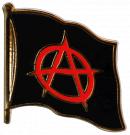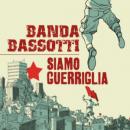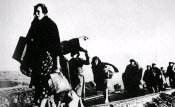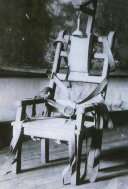To their countrymen and friends, of all those unfortunate men who received their several sentences of transportation, at the Summer Assizes for the year 1842, by the judges on the Northern Circuit.
The assizes they are over now, the Judge is gone away,
But many aching hearts are left in this town today
Tho’ crime is bad, yet poverty’s made many one to be
A transport from his native land, and cross the raging sea.
Oh! ‘tis a cruel sentence for a man to leave his wife,
His children, and his dearest friends, all dearer than his life;
To leave the land that gave him birth, to see it p’rhaps no more,
And drag a wretched life in chains, upon a distant shore.
The rich have no temptations, they have all things at command,
And ‘tis for pleasure or for health, they leave their native land;
But a starving wife and family, makes a poor man’s heart to break,
And makes him do what brings the blush of shame upon his cheek.
Oh think a sentence for one’s life, for fifteen years or less,
What tears they cost a family–what anguish and distress;
What heart but mourns the transport’s fate, what eye but shed a tear,
For tho’ we hate the crime we hold man’s liberty more dear
Oh would our rulers make a law for man to earn his bread,
And make sufficient wages to keep his wife and children fed,
The Judges would have less to do, and half their pay might be
Devoted to the public good, and bless society.
The prisons would be empty soon, the transport ships would then
Bring o’er the seas a load of corn, and not a load of men;
Act after act our rulers make, but one they will not do,
To do to others as they would themselves to be done unto.
Would they but pass an act for man to work and earn his bread,
Crime would soon dwindle from the land and transportation fled;
Would providence direct their hearts to make such laws and then
Instead of outlawed slaves–we might have free and honest men.
The assizes they are over now, the Judge is gone away,
But many aching hearts are left in this town today
Tho’ crime is bad, yet poverty’s made many one to be
A transport from his native land, and cross the raging sea.
Oh! ‘tis a cruel sentence for a man to leave his wife,
His children, and his dearest friends, all dearer than his life;
To leave the land that gave him birth, to see it p’rhaps no more,
And drag a wretched life in chains, upon a distant shore.
The rich have no temptations, they have all things at command,
And ‘tis for pleasure or for health, they leave their native land;
But a starving wife and family, makes a poor man’s heart to break,
And makes him do what brings the blush of shame upon his cheek.
Oh think a sentence for one’s life, for fifteen years or less,
What tears they cost a family–what anguish and distress;
What heart but mourns the transport’s fate, what eye but shed a tear,
For tho’ we hate the crime we hold man’s liberty more dear
Oh would our rulers make a law for man to earn his bread,
And make sufficient wages to keep his wife and children fed,
The Judges would have less to do, and half their pay might be
Devoted to the public good, and bless society.
The prisons would be empty soon, the transport ships would then
Bring o’er the seas a load of corn, and not a load of men;
Act after act our rulers make, but one they will not do,
To do to others as they would themselves to be done unto.
Would they but pass an act for man to work and earn his bread,
Crime would soon dwindle from the land and transportation fled;
Would providence direct their hearts to make such laws and then
Instead of outlawed slaves–we might have free and honest men.
inviata da Bernart Bartleby - 17/2/2016 - 10:34
×
![]()









Ballata di anonimo autore inglese raccolta da John Bell, ricercatore folklorico e bibliotecario in Newcastle
Nel primo volume di una raccolta di broadsides conservata presso gli archivi dell’Università di Newcastle upon Tyne, Inghilterra.
Testo trovato sul sito del FARNE, Folk Archive Resource North East
At the time this song was printed, the British penal code was extremely harsh. In the late eighteenth century Parliament had dramatically increased the number of capital offences and it was said that there were more executions annually in England than in all the rest of Europe. In Newcastle until well on into the second quarter of the nineteenth century, prisoners were hanged at Morpeth, Durham and Newcastle, before a great crowd of spectators, it being usual practice at Newcastle to hand over the body afterwards to the doctors at the Surgeon's Hall for dissection.
Transportation to colonies, in particular Australia, became extremely popular during the nineteenth century, reaching its peak in the 1830s. Four out of five death sentences were transmuted to transportation, the practice continuing until the early 1850s, when Sydney and Melbourne refused to take anymore convicts. Prisoners in Newcastle, who were condemned to this fate at the local assizes, were retained at Newgate gaol, or in the basement of the keep whilst they awaited transfer to a transportation ship.
Lamentazione sul trasporto dei condannati verso le colonie.
All’epoca della pubblicazione di questa canzone, il 1842, il codice penale britannico era estremamente duro. Alla fine del XVIII secolo, il Parlamento aveva notevolmente aumentato il numero dei reati capitali e si diceva che ci fossero più esecuzioni ogni anno in Inghilterra che in tutto il resto d'Europa. Nel nord est, fino fino alla metà del XIX secolo, i condannati venivano impiccati a Morpeth, Durham e Newcastle, davanti a grandi folle di spettatori, e a Newcastle era prassi che i corpi fossero poi lasciati ai chirurghi per la dissezione.
Il trasporto verso le colonie, in particolare l’Australia, divenne cosa comune nel corso del XIX secolo, raggiungendo il suo picco nel 1830. Quattro su cinque condanne a morte furono commutate nel trasporto e la pratica continuò fin oltre il 1850, quando Sydney e Melbourne rifiutarono di accogliere altri detenuti. A Newcastle i prigionieri, condannati a quel destino dai tribunali locali, venivano rinchiusi della prigione di Newgate, o nel seminterrato del mastio, in attesa del trasferimento su di una nave per il trasporto.